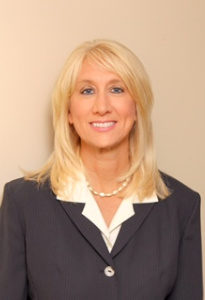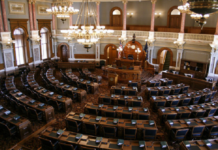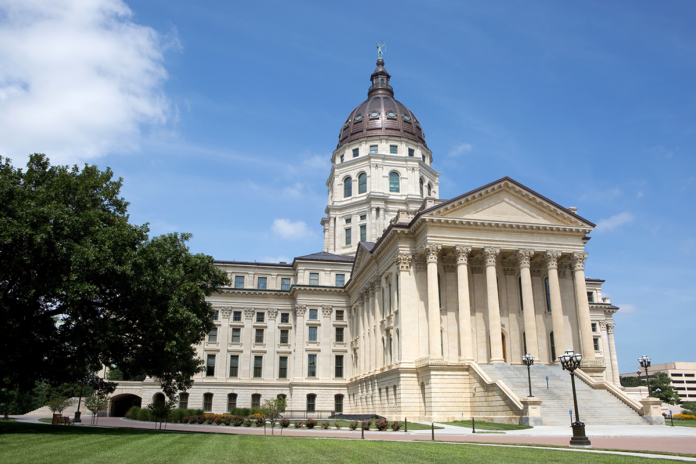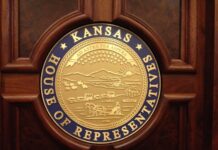Last year, Republican lawmakers practically ran the table on Democratic Gov. Laura Kelly.
House Republicans put up nine bills for an override vote in one day.
They won all of them.
Over the in the Senate, six bills were put up for an override the same day.
They won all but one, which will be up again this year.
It remains to be seen whether Republican leaders will enjoy the same success when they return this week for the veto session.
Kelly vetoed seven bills during the Legislature’s break, of which just two received the two-thirds votes majority in at least one chamber to override the governor.

Like last year, Republican lawmakers will be selective about what they try to override but some concede they have more to work to do this year.
House Majority Leader Dan Hawkins said Republicans have been limited in their ability to override because Kelly has been shifting more to right in an election year.
“I think she was real careful,” Hawkins said. “If it was something close to a supermajority, she just signed it. She didn’t veto.
“I just don’t think she gave us very many opportunities for overrides,” he said.
Kelly, for instance, signed a bill banning “sanctuary cities” over the opposition of her Democratic base as well as a bill cutting taxes by $310 million over three years.
Both those bills had overwhelming support in the Legislature and any veto would have likely been overridden.
“She’s signed things we never dreamed she’d sign,” he said. “She’s signing things that she wouldn’t have signed the last three years.”
Hawkins said he would like to have bills that have at least garnered 75 votes to put up for an override vote. Under 75, he said, and it’s hard to get enough votes for an override.
It has been rare to overturn a governor’s veto in Kansas.
Data compiled by Ballotpedia shows that just 3.9% of vetoes issued in Kansas from 2010 to 2020 have been overturned, although that covers a period when there was a Republican governor along with a Republican-controlled Legislature.
The bills still left on the table that the Kelly vetoed this year were passed by narrower margins and well short of the 84 votes needed for an override in the House and the 27 votes needed to override in the Senate.
A bill barring transgender women and girls from participating in interscholastic sports – known as the Fairness in Women’s Sports Act – and another providing a bill of rights for parents of school children passed short of the votes needed to override.
The bill of rights legislation received 23 votes in the Senate and 67 in House.
The transgender athletics bill passed with 25 votes in the Senate and 74 in the House, although in an earlier vote in the Senate it passed with the required 27 votes for an override of a veto.
There were seven Republican House members absent on the day the transgender sports bill was taken up in that chamber and two missing in the Senate.

“I’m optimistic,” said Senate President Ty Masterson as he heads into the veto session.
“We had some people missing on a few of those,” Masterson said.
“I’m hopeful to have the same success” as last year, he said. “I would like to override anything I attempt to override, but there’s no plans to override everything.”
Masterson said he “felt pretty good” about getting an override on the women’s sports bill and the parents bill of rights legislation.
Masterson said he expected more conversations about the bill of rights legislation, saying he believed that there was confusion with the more restrictive House bill.
It’s an issue, he said, that’s gained more attention during the break.
Republican state Sen. Rick Kloos made headlines, for instance, when he called for the Shawnee Heights School District to remove the book “Gender Queer” from a school library.
Kloos told the Topeka Capital-Journal that had received more than three dozen complaints from parents expressing concern about the book.
The bill of rights legislation – criticized for opening the door to censorship and bullying of teachers – gives parents the ability to challenge the material or educational benefit of any book or magazine in the school library.
It also allows parents to object to any learning material or activity because it harms the child or hinders the parents’ firmly held beliefs, values or principles.
It requires local school boards to adopt policies to guarantee, among other things, a parent’s right to inspect instructional materials as well as all written and electronic records maintained by a school relating to students.
“At the coffees over this break, it was probably the loudest subject matter we had,” Masterson said. “I feel pretty good that we can get there.”

Republican Sen. Renee Erickson of Wichita said she was optimistic that the Senate could override on both bills.
The assistant Senate majority leader said she, too, believed there was confusion over the bill of rights legislation that led to it falling short of supermajority.
“I think just talking some senators through the bill and what is does and does not do, I’m cautiously optimistic we will override on that bill as well,” she said.
The Senate’s top Democrat, Dinah Sykes, said she believes the Senate will override on the transgender sports bill and possibly on the bill of rights legislation.
“I think our hope is the House being able to sustain,” Sykes said.
The parents bill of rights came up 17 votes short of a veto override in the House and the transgender sports bill was 11 votes short.

Republican state Rep. Kristey Williams, chair of the K-12 Education Budget Committee, said an override on the parents’ bill of rights would be “tough.”
“It’s a tough climb up,” the Augusta lawmaker said.
“It should be something that Republicans should rally together to support parents, to support kids, to support transparency,” she said.
Republican state Rep. Barbara Wasinger of Hays carried the women’s sports bill on the floor of the House. She was not sure whether an override was possible.
“We have to see if we can get some more people on our side,” she said.
“I am pretty sure it will get out of the Senate. I just have to figure out how to get it through the House.”
Hawkins said he wants to work another vetoed bill that requires able-bodied adults without dependents who receive food assistance and don’t work at least 30 hours a week to participate in an employment and training program that’s now voluntary.
The bill passed with just 70 votes in the House and 28 votes in the Senate. There were five Republicans absent the day of the vote.
“That’s about it,” he said. “There’s just not a whole lot of other stuff from a veto standpoint that we’ve got the votes to do.”
Other bills that the governor vetoed that are less talked about, including legislation allowing Amazon and FedEx to deploy automated vehicles on city sidewalks and streets to deliver packages.
The bill has had lukewarm support through the process, drawing opposition from Democrats and Republicans alike.
Labor unions have opposed the bill out fear that it would kill jobs.
It passed with 22 votes in the Senate and 75 votes over in the House.
Masterson expressed doubt about a bill extending civil liability protections for health care providers and businesses stemming from COVID-19.
The bill excluded medical facilities and their providers from immunity if they refused to provide treatment to someone because they’re not vaccinated against COVID-19.
It passed with 24 votes in the Senate and just 64 votes in the House – making any veto override highly improbable.
“It wasn’t a hill to die on,” he said.
















